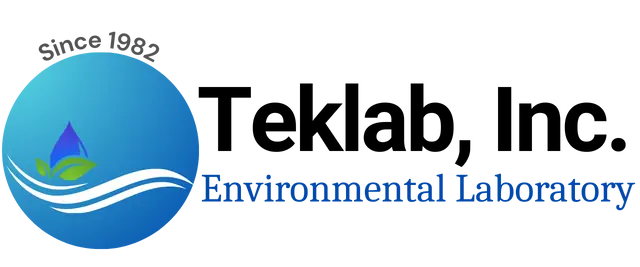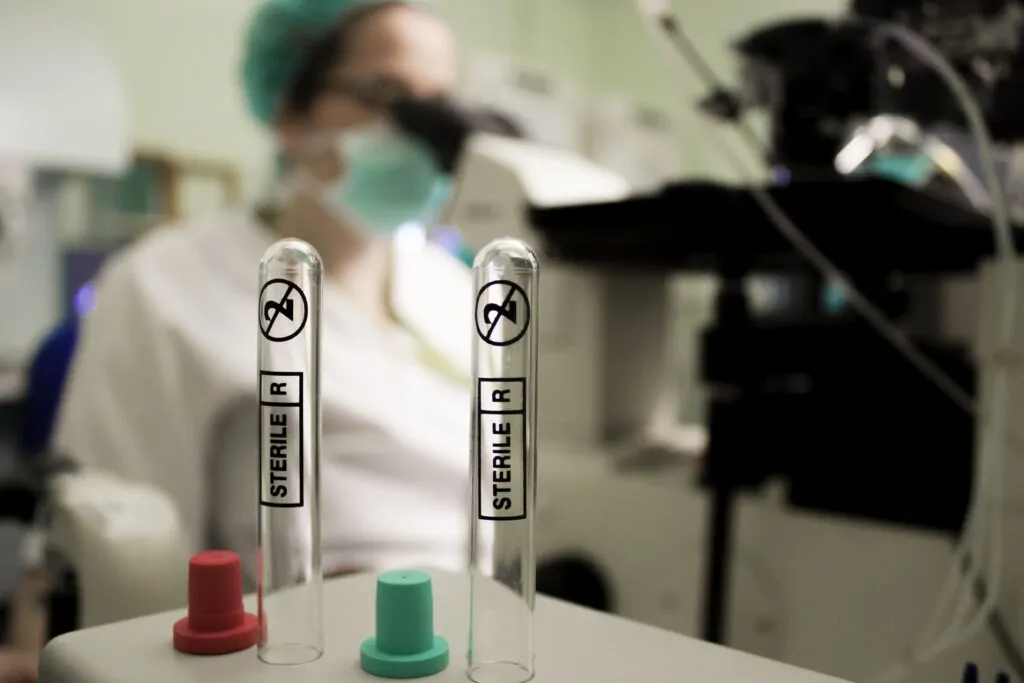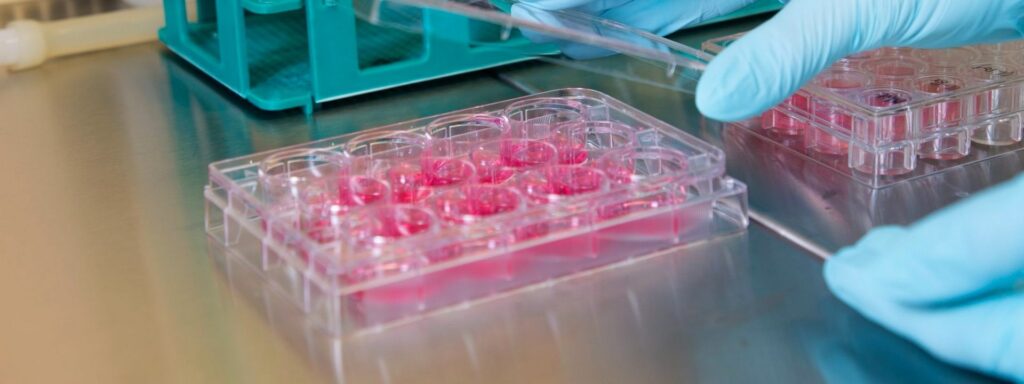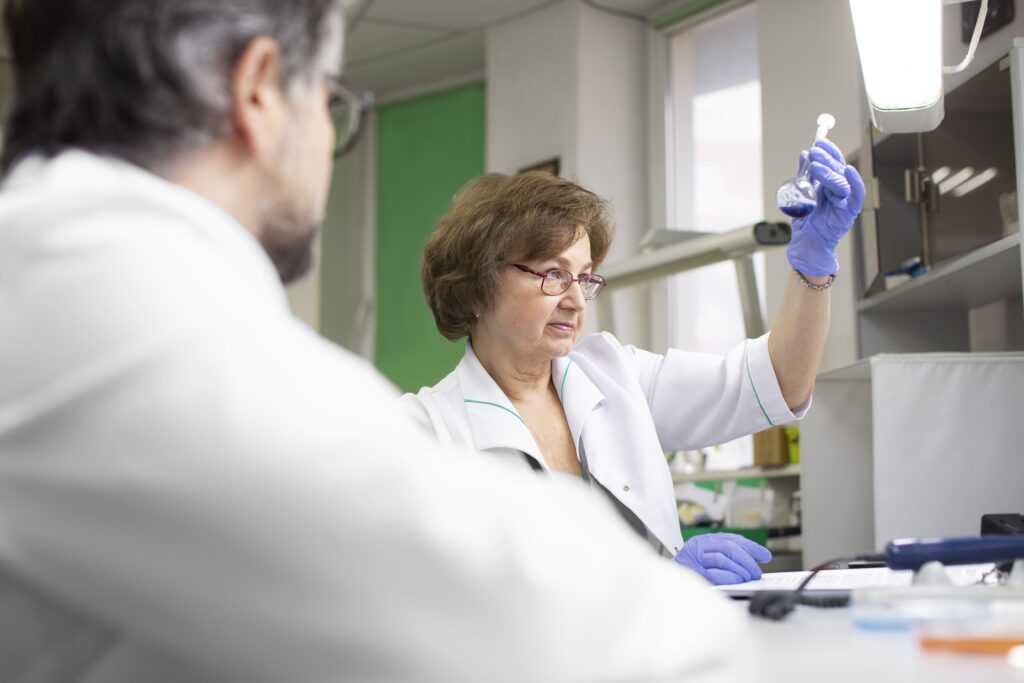EPA Method 1671: Pharmaceutical Manufacturing Industry (PMI) Effluent Analysis
Ensuring Clean Water Act Compliance with Teklab’s Specialized Environmental Testing
The Clean Water Act (CWA) mandates the monitoring and regulation of pollutants discharged into U.S. waterways. EPA Method 1671 is a specialized analytical technique developed by the Environmental Protection Agency (EPA) to survey and monitor specific non-purgeable volatile organic pollutants unique to the pharmaceutical manufacturing industry (PMI). This method is crucial for ensuring that pharmaceutical facilities comply with environmental regulations and minimize their impact on water quality.
Teklab, as a NELAC-accredited environmental testing laboratory, offers comprehensive EPA Method 1671 analysis, providing accurate and reliable data for pharmaceutical manufacturers. Our expertise in this specialized area helps our clients meet their regulatory obligations and maintain environmentally responsible operations.
What is EPA Method 1671?
EPA Method 1671 utilizes direct aqueous injection gas chromatography (GC) with flame ionization detection (FID) to identify and quantify specific volatile organic compounds (VOCs) present in pharmaceutical manufacturing wastewater. This method is particularly well-suited for compounds that are not easily purged from water samples, making it ideal for the unique challenges presented by PMI effluent.
Compounds Analyzed by EPA Method 1671
📌Teklab’s EPA 1671 analysis includes, but is not limited to, the following compounds:
Analytes for 1671 PMI
Note: This table represents a selection of compounds analyzed under EPA Method 1671. Teklab’s capabilities extend to a broader range of PMI-related pollutants. Contact us for a complete list.
Pharmaceutical Manufacturing Industry (PMI) Subcategories
The EPA has categorized pharmaceutical manufacturing facilities into four subcategories based on their primary processes:
Subcategory A: Fermentation Operations: Facilities that produce pharmaceuticals through fermentation processes.
Subcategory B: Biological and Natural Extraction Operations: Facilities that extract pharmaceuticals from biological sources or natural materials.
Subcategory C: Chemical Synthesis Operations: Facilities that synthesize pharmaceuticals through chemical reactions.
Subcategory D: Mixing, Compounding, or Formulating Operations: Facilities that mix, compound, or formulate pharmaceutical products.
Understanding these subcategories is essential for tailoring analytical strategies and ensuring accurate monitoring of specific pollutants associated with each type of operation.
Teklab’s Expertise in EPA Method 1671 and Related Analyses
As a leading environmental testing facility, Teklab specializes in providing high-quality Semi-Volatile Organic Compound (SVOC) testing, including EPA Method 1671. We also routinely perform this specialty analysis for other environmental testing labs, demonstrating our commitment to excellence and technical expertise.
🧪In addition to EPA Method 1671, Teklab analyzes PMI compounds using other relevant EPA methods, including:
EPA Method 1666: For the determination of certain organic compounds in wastewater and other environmental samples.
EPA Method 524.2: For the measurement of volatile organic compounds in drinking water.
✔This multi-method approach ensures comprehensive and reliable data for our clients.
Key Details on EPA Method 1671 at Teklab
Detection Limits: At Teklab, the sensitivity of Method 1671 is optimized to minimize the impact of sample interferences, ensuring accurate and reliable results. Our advanced instrumentation and experienced analysts allow us to achieve low detection limits, even in complex matrices.
Health and Safety: Teklab prioritizes the health and safety of our employees. While the toxicity and carcinogenicity of all analytes and reagents used in Method 1671 may not be fully established, we treat all compounds as potential health hazards. We implement rigorous safety protocols to minimize exposure and maintain a safe working environment.
Analytical Flexibility and Technology Advances: Teklab embraces innovation and continuously updates our analytical capabilities to meet the evolving needs of our clients. We leverage advancements in technology to improve separation, reduce costs, and enhance the overall efficiency of our analyses.
To accommodate advances in analytical technology and address sample matrix challenges, analysts are permitted to:
- Utilize alternative concentration and cleanup procedures to optimize sample preparation.
- Implement variations in columns and detectors to improve separation or reduce costs, provided these modifications do not compromise method performance.
Restrictions: Substitutions such as spectroscopy or immunoassay, which degrade method performance, are not allowed.
- Alternative techniques must meet or exceed the specificity of the prescribed method for the target analytes.
💡Why Choose Teklab for EPA Method 1671 Analysis?
NELAC Accreditation: Ensures the highest standards of quality and data integrity.
Experienced Analysts: Our team of skilled chemists has extensive experience in EPA Method 1671 and related analyses.
Advanced Instrumentation: We utilize state-of-the-art GC-FID instrumentation to achieve accurate and reliable results.
Comprehensive Reporting: We provide clear and concise reports that meet regulatory requirements.
Exceptional Customer Service: We are committed to providing our clients with responsive and personalized service.
Commitment to Innovation: We continuously invest in new technologies and methods to improve our analytical capabilities.
☎Contact Teklab Today:
Teklab’s commitment to innovation and stringent adherence to EPA guidelines ensures precise, efficient, and reliable results for your environmental testing needs.
Contact us today to learn more about our advanced testing capabilities and how we can assist with your analytical requirements. We are here to help you navigate the complexities of environmental regulations and ensure the responsible management of pharmaceutical manufacturing effluent.



